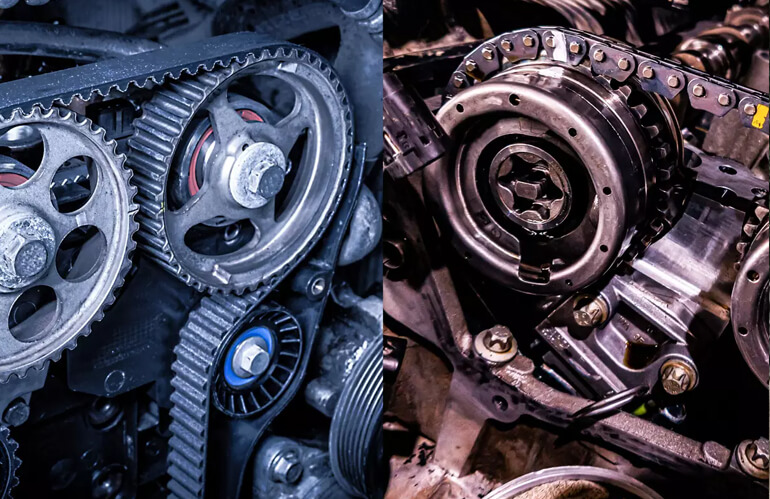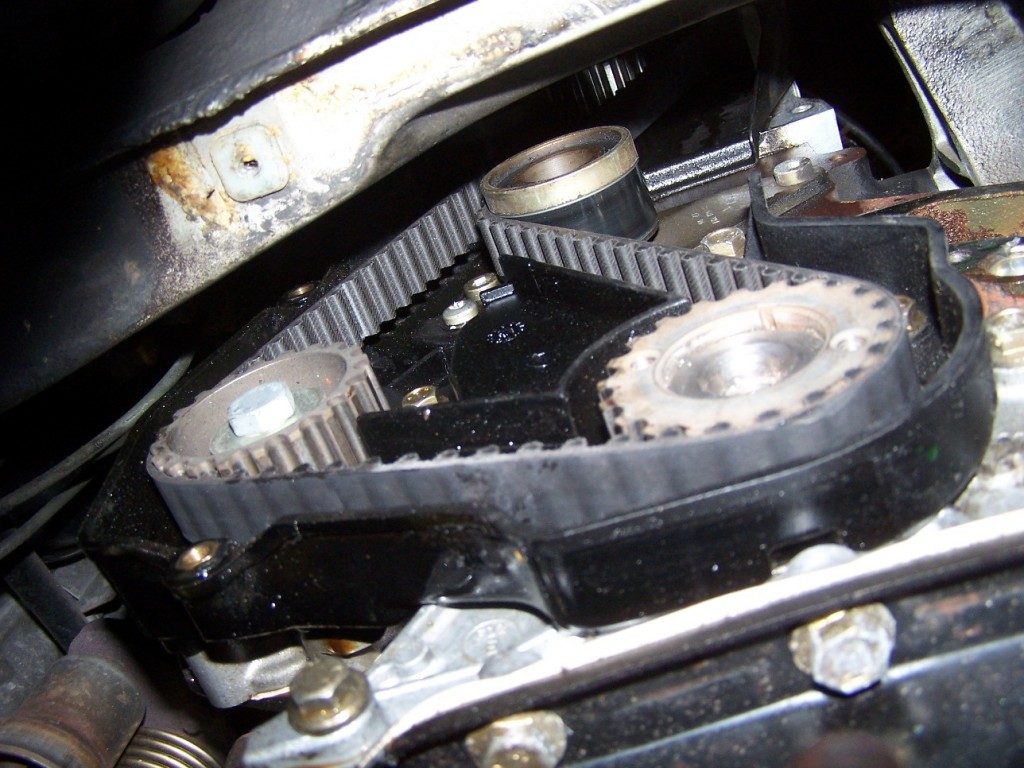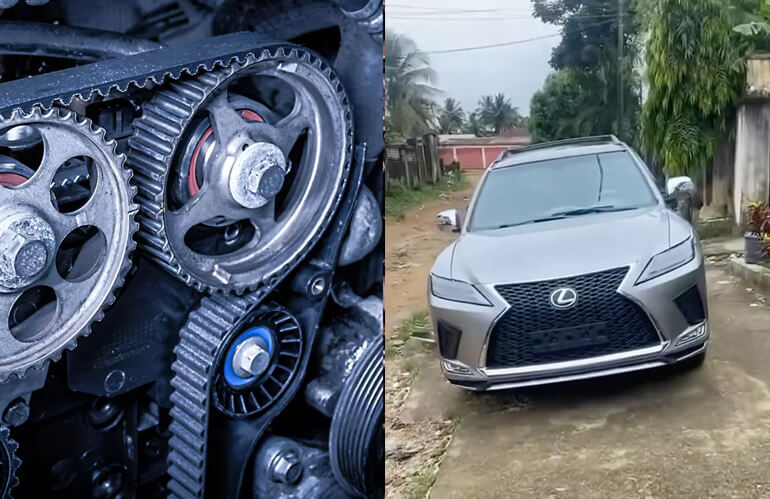You can easily imagine several things happening simultaneously inside your car’s engine. The injectors deliver fuel to the cylinder, intake, and exhaust valves close, and the piston compresses the fuel and air mixture until ignited by a spark delivered by the ignition system.
Table of Contents
All of these activities require perfect timing, and your car’s timing belt is a significant part of keeping your vehicle running smoothly. So, how long should your vehicle timing belt stay before you change it?
In this article, we explain everything you should know about timing belts and when to change them in your car.
What is a Timing Belt?

Your car’s timing belt keeps the valves’ opening and closing sequences synchronized with piston strokes. Most automobile engines operate on a four-stroke cycle; intake, compression, power, and exhaust describe two revolutions of the crankshaft and the piston falling, rising, falling, and rising again.
This cycle must be in time with the valve timing controlled by the camshaft opening and closing intake and exhaust valves.
Your car’s timing belt is a toothed rubber belt. It ties the crankshaft and camshaft together, and it needs periodic replacement.
How Often Should I Replace My Car’s Timing Belt?
Experts point out that there’s “no simple answer” for knowing how often you should replace your car’s timing belt. But, that your car’s owner’s manual is a good resource for scheduled maintenance.
Different automakers have varying requirements. “Some manufacturers recommend replacing the timing belt every 30,000 miles, while others suggest 120,000 miles” before requiring replacement.
If you use a used car that doesn’t come with an owner’s manual, then a professional mechanic will guide you on when to change your timing belt, based on their study of your car.
What are The Signs of a Timing Belt Going Bad?
You might notice your car losing some power as it accumulates miles. A tune-up might fix the issue, but if you hear squeaking or ticking noises near the front of the engine while it’s running, it could be the timing belt.
The most definitive way to tell if the part needs changing is to inspect it by removing the belt cover.
If you possess the skills and your car’s design makes it possible, visual inspection is relatively straightforward. Follow the directions in a service manual matching your car’s make and model.
If you find cracks, missing pieces, rounded edges, or other signs of wear, then it’s time to replace the belt.
How Much Does it Cost to Replace a Timing Belt in Nigeria?

Timing belt replacement prices range from N15,000 upwards depending on the size of your car’s engine. The part isn’t expensive, but size makes up the bulk of the price. For example, “smaller passenger cars with smaller engines are generally less expensive than a larger vehicle with a bigger engine.”
Replacing your timing belt is best left to professionals. That’s because it’s a complicated job that often requires expertise and special tools. And an incorrectly installed belt can damage your car’s engine.
Is Replacing the Timing Belt Worth It?
The value of replacing your car’s timing belt lies in preventing significant damage to the engine. In some engines, a failed belt causes contact between valves and pistons, leading to the need for a costly engine rebuild or replacement. Inspecting or replacing the belt as directed by the manufacturer is an inexpensive way to get more life out of your car.
Conclusion
The timing belt is an essential part of any car, and replacing it when it’s worn out will improve the condition and health of your vehicle. So, if you don’t know when to do it, then consult with an experienced mechanic.
Have 1 million naira and above to Buy or Sell Cars In Nigeria? Check carlots.ng
All rights reserved. Reproduction, publication, broadcasting, rewriting, or redistribution of this material and other digital content on carmart.ng is strictly prohibited without prior express written permission from Carmart Nigeria - Contact: [email protected]







